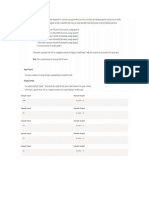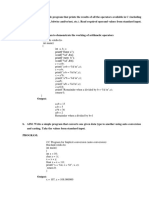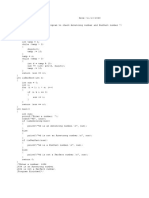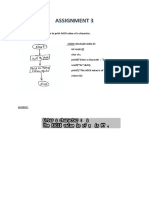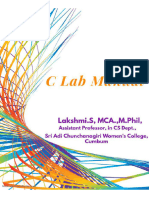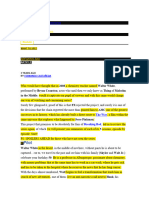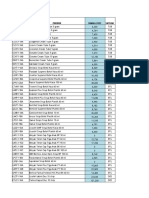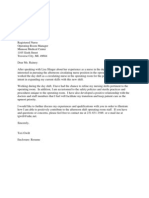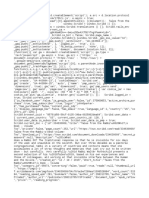0% found this document useful (0 votes)
11 views2 pagesProgram 3
The document contains two C programs: the first is a simple calculator that performs addition, subtraction, multiplication, and division based on user input, while handling division by zero and invalid operators. The second program checks if a given integer is an Armstrong number, which is defined as a number that equals the sum of its digits raised to the power of the number of digits. Both programs include user input prompts and output results accordingly.
Uploaded by
gtshadow2006Copyright
© © All Rights Reserved
We take content rights seriously. If you suspect this is your content, claim it here.
Available Formats
Download as TXT, PDF, TXT or read online on Scribd
0% found this document useful (0 votes)
11 views2 pagesProgram 3
The document contains two C programs: the first is a simple calculator that performs addition, subtraction, multiplication, and division based on user input, while handling division by zero and invalid operators. The second program checks if a given integer is an Armstrong number, which is defined as a number that equals the sum of its digits raised to the power of the number of digits. Both programs include user input prompts and output results accordingly.
Uploaded by
gtshadow2006Copyright
© © All Rights Reserved
We take content rights seriously. If you suspect this is your content, claim it here.
Available Formats
Download as TXT, PDF, TXT or read online on Scribd
/ 2



